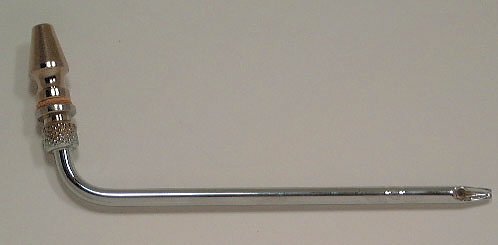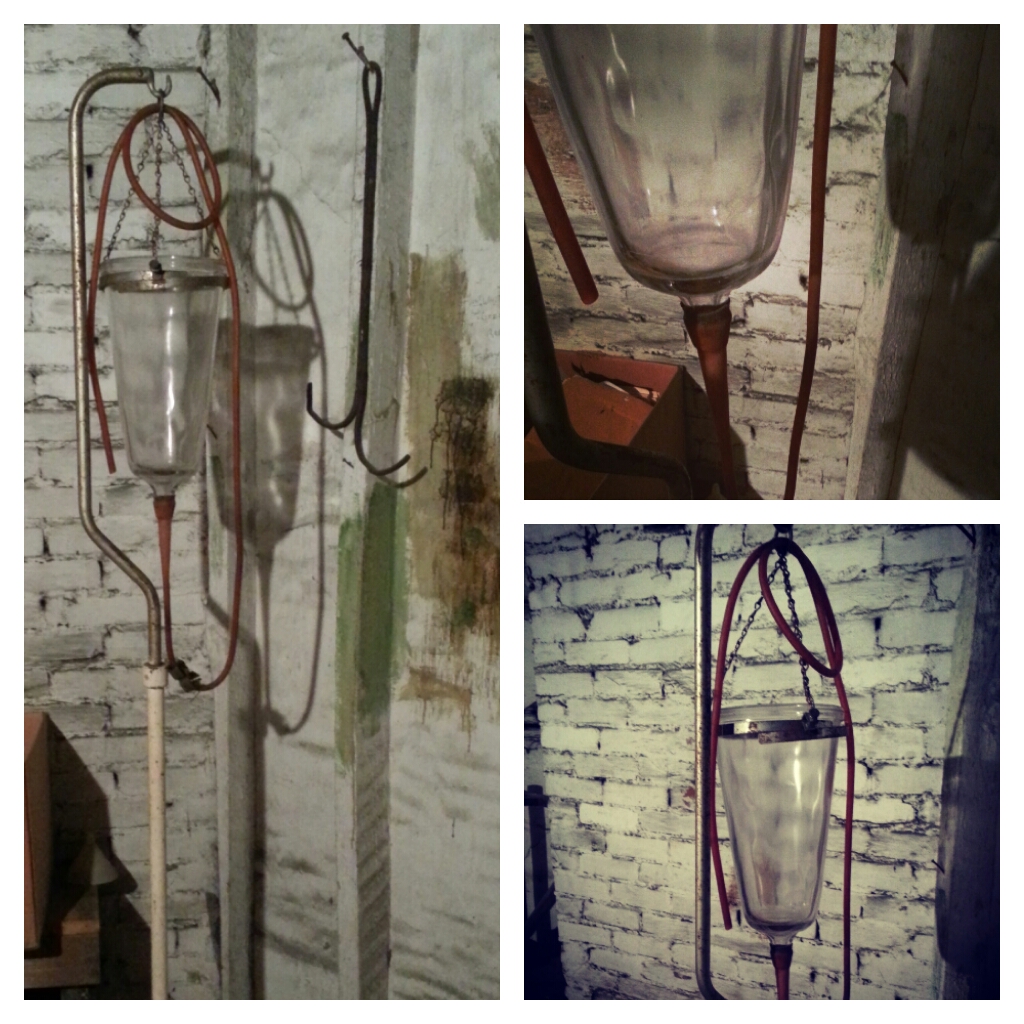Death
When Our Memories Smell Like Us
Four months after Newtown, People magazine has published a series called, “Life After Newtown Shootings” where the parents describe their grief and how they are coping. It’s a beautiful series and well-worth your time and the three dollar Kleenex box that you’ll go through.
One of the parents mentions that she still sleeps with her son’s pajamas so that she can be soothed by “his smell.” Certainly, considering the tragedy of Newtown, there is nothing abnormal about her practice. In fact, it’s healthy and I can’t help but feel the heaviness of her grief as I think about it.
Here’s a question: A what point has her son’s smell disappeared and what she thinks is her son’s smell is actually her own smell. At what point in sleeping with his pajamas have they stopped smelling like her son and started to smell like her?
At funerals, you’ll often hear people say, “Cathy lives on in all of our memories” or, “Cathy will never die as longs as we remember her.”
There’s a difficulty that comes with remembering our loved one.
I remember an old man, who was married to his late wife for over 50 years, stopped into funeral home to pay his bill and he said, “I both grieve the loss of my wife and the distortion of my memories of her. Even now, when I remember her, I ask myself, “Is this memory real or is it my mind’s adaptation of her? I only want to remember the good, but I miss the bad and messy nearly as much because it’s who she was.”
There’s a time when the smell on the pajamas becomes our own. There’s a time when memories are distorted by our desires for comfort. But, this is why we must grieve in community … so that community can help us piece together the real.
Grief must take place in community! We have to share, we have to be vulnerable with our friends and family.
Share at your family dinners … over the holidays.
Be brave an ask your parents old friends about mom/dad. Ask your child’s friends … your spouse’s co-workers.
Have people write down their memories.
Talk. Talk. Talk. Talk about your deceased loved one. Don’t let the memories die. Don’t let them become distorted.
“They’ll Be Happy”
Says my grandfather as he looks at the handsome face of a 13 year old boy lying motionless on our stretcher.
The last time the family saw him was a couple days before Easter.
Now, a day removed from Easter, they will view the body of their son one final time before he’s taken to the crematory.
Mothers dread walking into their son’s room and finding their boy making out with a girl. They don’t look forward to walking into their son’s room and finding them with cigarette in hand.
But few mothers have experienced this: walking into your son’s room to find him lying on the floor with his face distorted and discolored from livor mortis. It was a heart problem that the doctors said was under the control of proper medication.
The mother came through the funeral home door with a laugh, trailed by her husband (the father), their son and a couple friends.
They couldn’t have done this alone. “Thank God for the blessings of friends and family” I think to myself.
Those laughs are now tears as they cut some of the locks of his hair and place them neatly in our small keepsake bags. My dad walks past me and says, “Hardest thing I have to see today.” That after he embalmed a 47 year old cancer patient in the morning and then held the hand of the cancer patient’s wife while she made arrangements.
Silence.
10 minutes pass.
15.
Tears communicate instead of their words.
“He looks so good”, one of them says.
We wait, feeling the temperature of the room with that empathy sense that funeral directors develop.
We’ve done what we can to remove the livor, leaving his facial skin looking like that of a china doll. And once they begin walking away from the stretcher, the laughter begins again.
I start an internal dialogue as I attempt to understand the contrast of tears and laughter:
“It’s got to be unhealthy for them to be laughing.”
“Maybe, but how would you feel when the last time you saw your son’s face it was discolored?”
“But this is so unnatural! The whole thing … the death itself, the way they found him and now … laughter?!?”
“Imagine all the darkness they’ve seen … and now this little glimmer of light … small as it may be … they can see their son one last time the way they remember him. Something as simple as his cleared up skin may be the brightest thought they’ve had for days. Let them laugh now … there will be plenty of crying to do later.
And with that I consoled myself; reassuring myself that when a child dies, sometimes, somehow … it can be natural for parents to leave the funeral home happy.
****
As with all my post, circumstances have been changed and rearranged so as to protect the privacy of this family.
Historical Quickie on Arterial Embalming Equipment
In the frustration of multitasking the details of four new calls, I decided to channel my angst into some spring cleaning. A new computer arrived yesterday, so in between the set up I threw all of our old lets-save-this-cause-we might-need-it tech in the dumpster.
After cleaning out the second floor of a tape player, two broken printers and a 30 pound monster monitor, I shifted my attention to the gallows of the basement … where ALL the old equipment goes to rest. After finding an 18 year old Compact monitor, I found the old embalming machines.
In our morgue today rests a Porti-Boy, the pinnacle of modern embalming tech.
With the Porti-Boy, you can control the pressure of the embalming fluid and the rate of flow via the little knobs on the left and right of the console.
The end of the rubber tube is where the arterial tube is inserted.
Once the incision on the deceased is made and the desired artery is raised (usually the carotid), the arterial tube is placed into the artery, the Porti-Boy is turned on and the fluid pushes out the blood via an open vein, replacing the blood with embalming fluid.
That’s how it’s done today.
Our funeral business is over 160 years old. And when we first started embalming, there was no electric Porti-Boy. In fact, there was no morgue to house the lovely embalming machine.
We came to your house. With our own equipment. By the time my grandfather was a teen, this tradition of embalming at the deceased’s house had waned. He remembers doing it a dozen times or so.
When I went down to the basement to clean out the old computers, I found the old embalming “machine” that my great grandfather would have used. It’s called an embalming gravity flask and stand … or something like that. I’ve actually used this contraption once when we lost electricity during a storm. And it worked.
You put the mixed embalming fluid in the flask, and raise the stand to find your desired pressure. The higher the flask, the more pressure it produced to push the blood out and the fluid in. My predecessors would lug this thing to the home of the deceased, put the body in the kitchen and try their best not to spill any blood. How they kept the blood from spilling (without the use of an embalming table), I have no idea.
My grandfather recounts that he and his dad used to play “who spills the least blood droplets on the floor” game. Apparently – per my grandfather’s selective memory – he would always win.
The Vulnerability of God
The Vulnerable God
William Placher writes,
Love involves a willingness to put oneself at risk, and God is in fact vulnerable in love, vulnerable even to great suffering. God’s self-revelation is Jesus Christ, and, as readers encounter him in the biblical stories, he wanders with nowhere to lay his head, washes the feet of his disciples like a servant, and suffers and dies on a cross — condemned by the authorities of his time, undergoing great pain, “despised and rejected by others; a man of suffering and acquainted with infirmity”
This week we reflect on the pinnacle of the vulnerably of God … the death of Jesus.
Pulled Into the Narrative of Suffering
In Matthew 20: 20 – 23, the mother of disciples James and John asks Jesus this question, “Grant that one of these two sons of mine may sit at your right and the other at your left in your kingdom.”
Jesus’ response turns the whole conversation on it’s head. James and John’s mother assumes that Jesus is coming into Jerusalem to set up his Kingdom, whereby Jesus will claim the thrown of David and push the Romans and their rule out of the land of Israel.
The disciples see Jesus’ entering Jerusalem as a power play and they want a piece of the power.
It was evident that James and John, their mother and the disciples had yet to understand the nature of the Kingdom: freedom, vulnerability, love and often suffering.
Jesus responds, “You don’t know what you are asking. Can you drink the cup I am going to drink?” In the Old Testament “the cup” was a metaphor for suffering … the very opposite of power. In fact, power is the human response to suffering. Power is the human response to vulnerability. Suffering is the divine response to vulnerability.
Jesus then states, “You will indeed drink from my cup ….”
And although they didn’t understand it, the disciples eventually would understand the brokenness of God over the world. They would eventually re-narrate the vulnerability of God in their own suffering … a re-narration that God invites all of his followers to embrace. As we’ve prayed so often, “Lord, break my heart with the things that break yours.”
Simon of Cyrene
Perhaps that re-narration is nowhere more visually clear than in Simon of Cyrene. It seems that Simon is actually forced into helping Jesus carry the cross to Golgotha. Mel Gibson portrayed Simon in “The Passion of the Christ” as being unwilling to carry the cross.
And I think most of us respond in the same way. When God asks us to help him carry his burdens and we realize that his burdens are the weak, the poor and the sinful, we all turn our heads in disgust.
“You mean you’re calling me to weakness?”, we ask. “I thought you saved me in order to give me strength?” we snark.
And we find ourselves like Simon of Cyrene being forced to carry a cross that isn’t ours.
“But, you’re God … why can’t you carry this on your own?” we retort. ”Aren’t you all-powerful? Aren’t you the one who created the world?”
The truth sets in.
God needs our help.
HE CAN’T CARRY THE BURDEN ALONE.
Some final thoughts from William Placher,
If God becomes human in just this way, moreover, then that tells us something about how we might seek our own fullest humanity — not in quests of power and wealth and fame but in service, solidarity with the despised and rejected, and the willingness to be vulnerable in love.
We become human when we become Simon of Cyrene and embrace the vulnerability of God by carrying his cross with Him.




